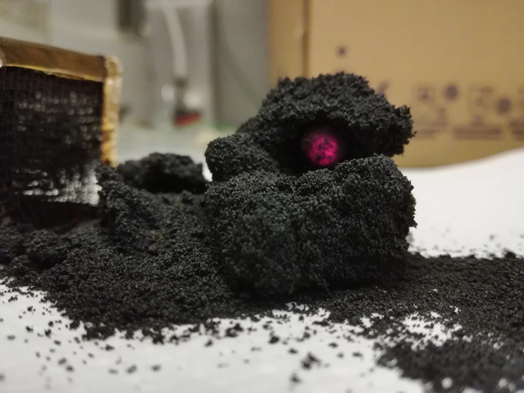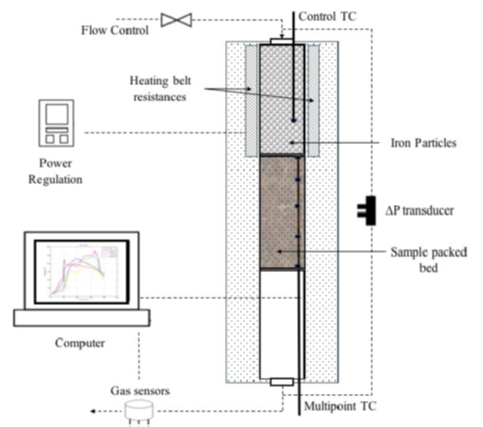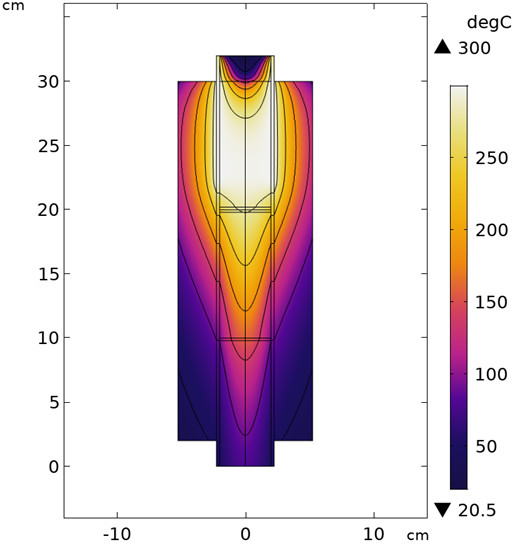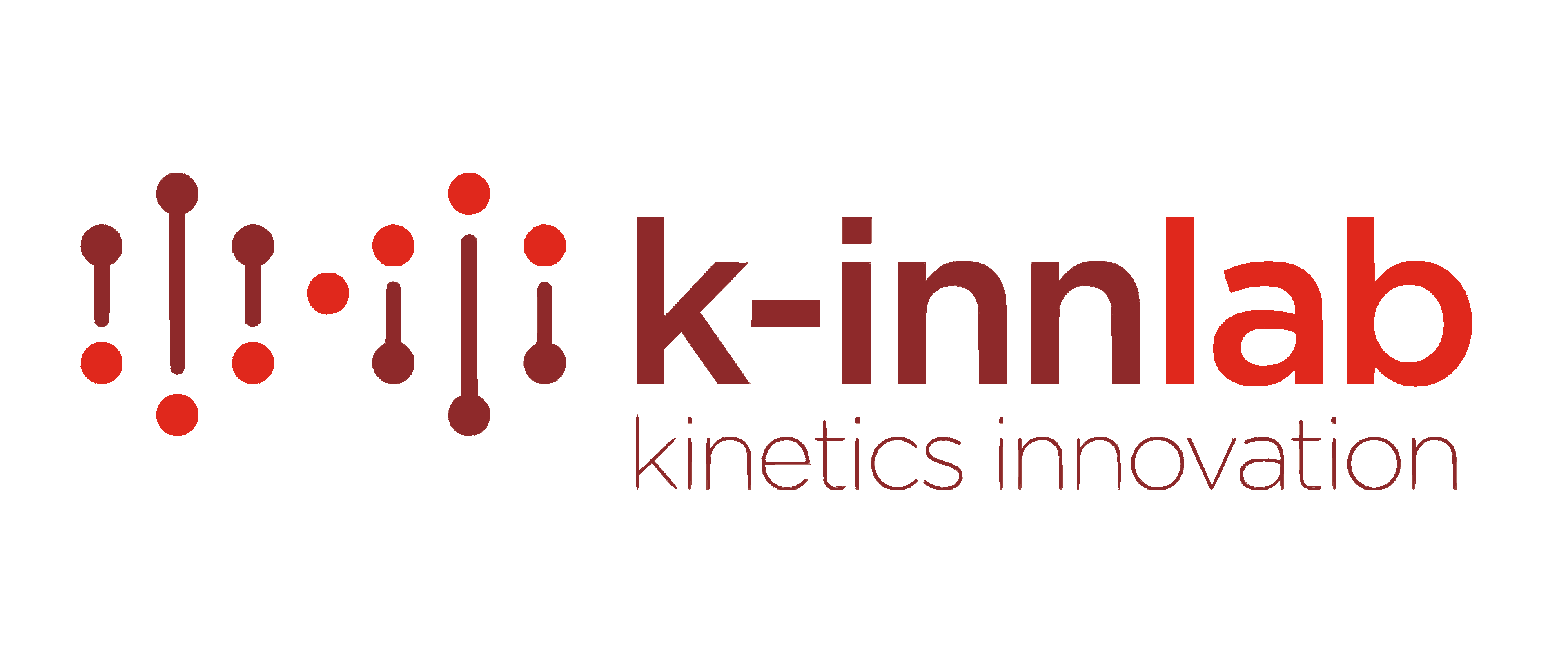
Smoldering is a heterogeneous oxidation reaction that takes place on the surface of a solid fuel.
The reaction is limited by the rate of oxygen that can diffuse towards the fuel surface, resulting in low temperature and slow reactions rates compared to flaming combustion. Also, smoldering is a self-sustaining phenomenon occurring when oxidation reactions generate enough heat to overcome heat losses and, consequently, it is able to sustain the propagation of the reaction.

Using laboratory-scale tests at a larger scale (101 to 102 g), we investigate the low-temperature ignition of materials and their spontaneous smoldering, in static or flowing atmosphere. The increase of scale needed because the smoldering process is the result of chemical and transport mechanisms.

The experimental and modeling investigations explore factors like particle size, amount of material, moisture content, material packing, heating rate, geometry of the storage, air feed flow and oxygen concentration. Flow experiments add information about the gases produced during and after the ignition, under different atmospheres and operating conditions.




